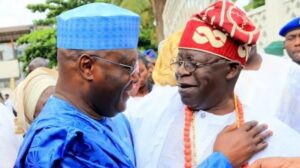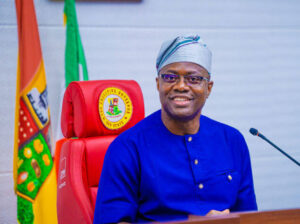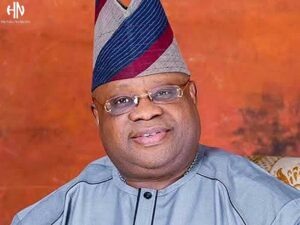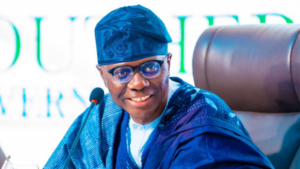Ibadan, September 26, 2025 — The ancient city of Ibadan came alive with grandeur and history today as Oba Rashidi Adewolu Ladoja, former governor of Oyo State, was formally crowned the 44th Olubadan of Ibadanland. The colourful ceremony at Mapo Hall, steeped in tradition and spectacle, attracted a convergence of Nigeria’s political elite, corporate titans, and traditional rulers from across the country, underlining the cultural and political weight of the Olubadan stool.
Historic Context
The Olubadan throne is one of Nigeria’s most unique traditional institutions, renowned for its ladder-based succession system where chiefs advance steadily through two recognized lines — the Egbe Agba and Balogun chieftaincy hierarchies. This merit-based progression makes it arguably the most orderly and predictable kingship succession in Yorubaland.
Oba Ladoja’s journey reflects this tradition: beginning as Mogaji of his family compound in the 1980s, he climbed steadily through the ranks, eventually becoming Otun Olubadan before today’s coronation. Notably, he becomes the first former elected governor of Oyo State to ascend the Olubadan throne — a fusion of political leadership and traditional authority rarely seen in Nigeria’s modern history.
The coronation also follows the passing of Oba Owolabi Olakulehin, the 43rd Olubadan, who reigned between July 2024 and July 2025. His passing paved the way for today’s historic investiture.

Attendance and Dignitaries
The scale of the event underscored its national importance. Among the dignitaries in attendance were:
President Bola Ahmed Tinubu — who arrived to a thunderous welcome from the jubilant Ibadan crowd.
Former Vice President Atiku Abubakar — 2023 PDP presidential candidate, affirming the bipartisan nature of the event.
Governor Seyi Makinde (Oyo State) — the chief host, who cut short his vacation to oversee preparations.
Sultan of Sokoto, Muhammadu Sa’ad Abubakar III — spiritual leader of Nigeria’s Muslims.
Rabiu Musa Kwankwaso, former Kano governor and NNPP leader.
Donald Duke, former Cross River governor.
Dr. Kayode Fayemi, former Ekiti governor.
Olagunsoye Oyinlola, former Osun governor.

Governor Babajide Sanwo-Olu (Lagos), Governor Dapo Abiodun (Ogun), Governor Ademola Adeleke (Osun), Governor Lucky Aiyedatiwa (Ondo) — representing the Southwest bloc.
Senators and Lawmakers from Oyo State and beyond, including Sharafadeen Abiodun, Yunus Akintunde, Abdulfatai Buhari, and Hon. Olamijuwonlo Alao-Akala.
A delegation of corporate leaders, captains of industry, and royal fathers from across the federation.
The roll call of attendees turned the coronation into a rare national convergence — blurring political rivalries and symbolizing unity around cultural heritage.
Ceremony and Spectacle
The rites began at Labosinde Compound, Oja’ba, where the Afobaje of Ibadanland, Chief Waheed Popoola, performed traditional rituals by placing Akoko leaves on Oba Ladoja’s head. The new monarch then embarked on a majestic procession to Mapo Hall, accompanied by drummers, masquerades, and cheering crowds.
Mapo Hall, draped in regal banners and Ibadan colours, hosted thousands of guests. Traditional troupes, cultural displays, and thunderous ovations punctuated the proceedings. Security presence was heavy, with roads closed and traffic diversions in place. Hotels across the city were fully booked, reflecting the influx of dignitaries and visitors.

Speeches and Symbolism
In his coronation address, Oba Ladoja called on President Tinubu to consider the long-standing demand for an “Ibadan State” — a bold statement that blended cultural pride with political advocacy.
President Tinubu, in his remarks, praised Ibadan for its historic role in Nigeria’s democracy and culture, describing the city as “a cradle of leadership and resilience.” Governors and dignitaries in turn emphasized the importance of preserving Yoruba traditions while fostering national unity.
Why This Coronation Matters
Cultural Significance: Reinforces Ibadan’s unique succession model and the vibrancy of Yoruba traditional institutions.
Political Symbolism: Attendance by Nigeria’s top political leaders highlights the Olubadan throne as not just cultural, but strategic.
Economic Boost: The ceremony spurred tourism, hospitality, and local commerce — with hotels, vendors, and artisans enjoying record patronage.

Historical Legacy: Oba Ladoja’s dual identity as politician and monarch cements this coronation as one of the most consequential in Ibadan’s history.
Conclusion
The coronation of Oba Rashidi Ladoja as the 44th Olubadan was more than a traditional rite; it was a national spectacle of unity, heritage, and politics. With the presence of a sitting President, a former President, a former Vice President, multiple governors, lawmakers, and traditional rulers, Ibadan once again asserted itself as a city of influence and prestige.
This coronation will be remembered not just as the installation of a monarch, but as a defining cultural and political moment in 21st-century Nigeria.

Princess G. Adebajo-Fraser MFR.
Royal Affairs Correspondent.
Headlinenews.news Special report.



